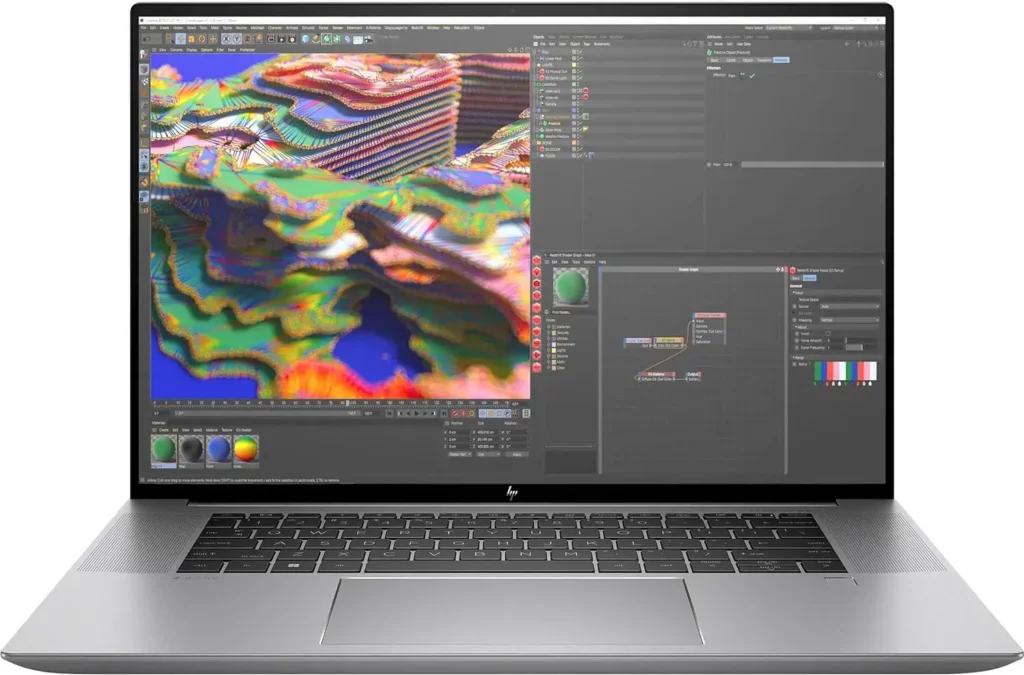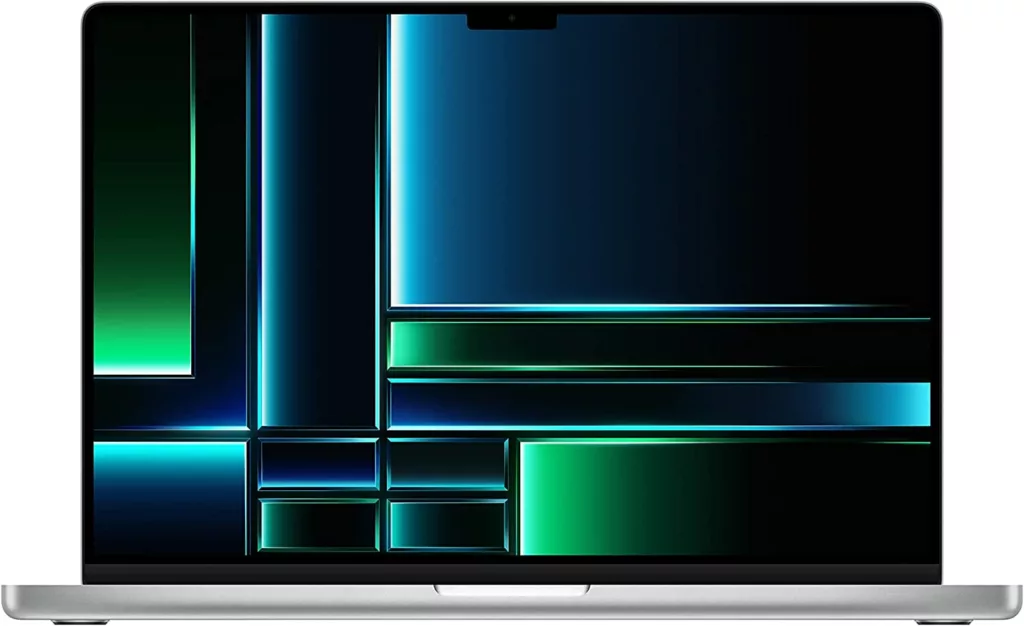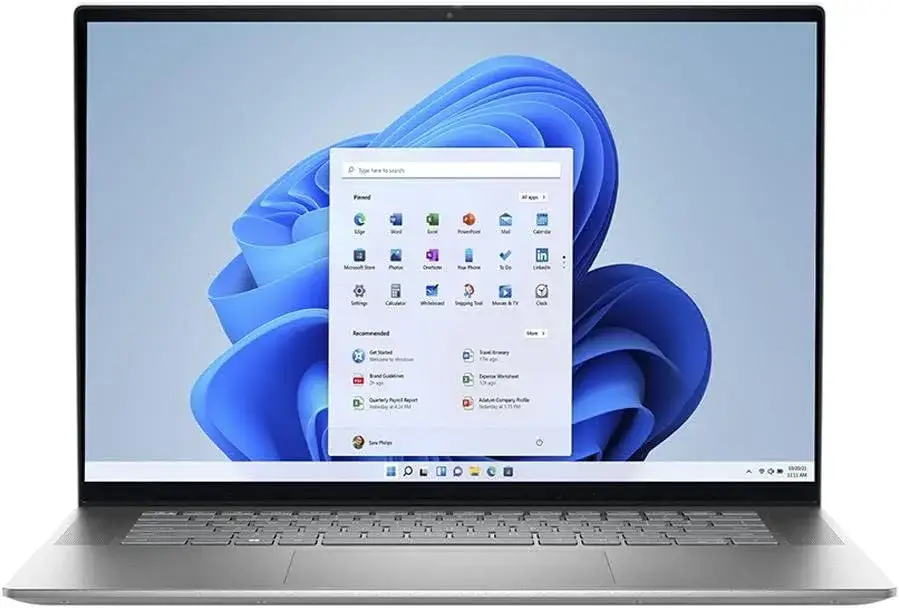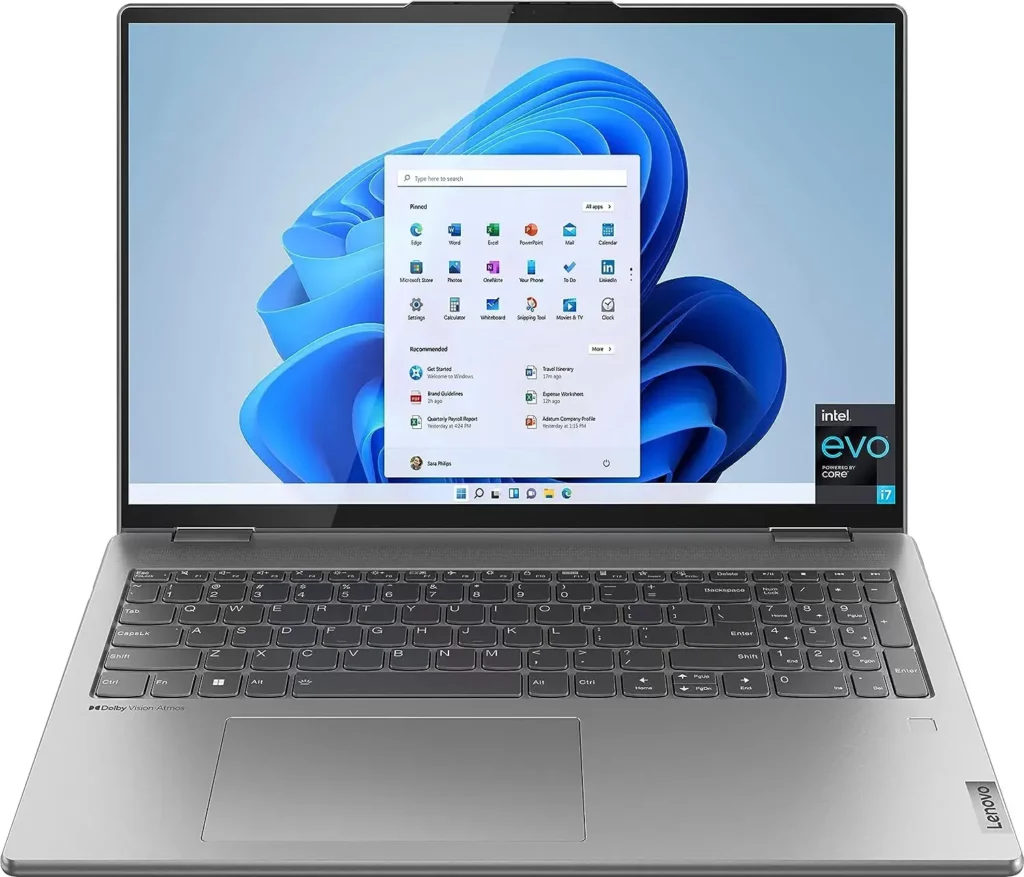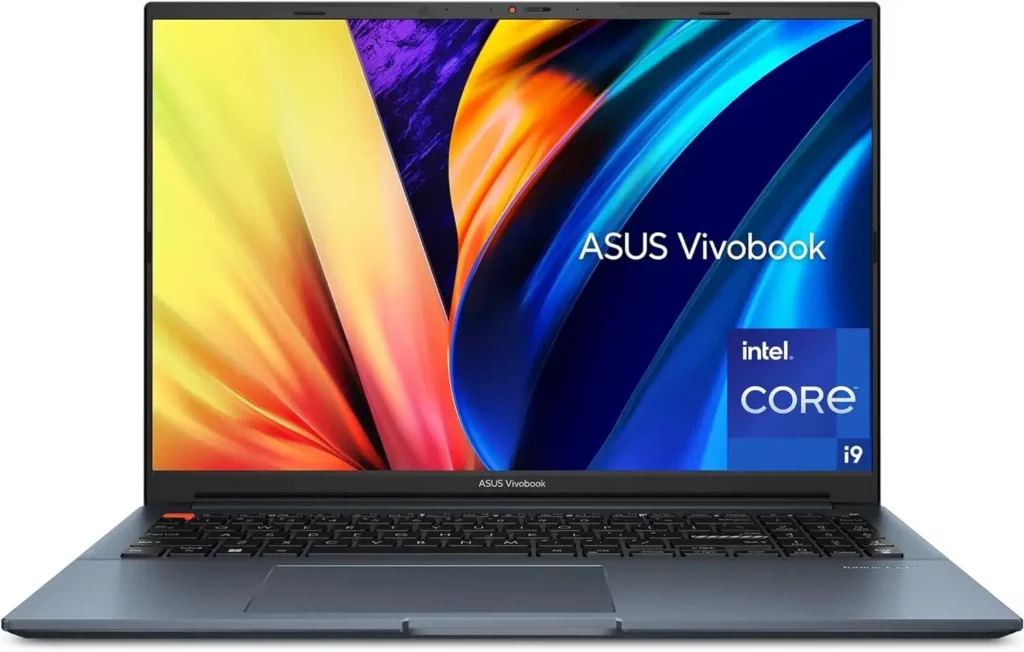Since the use of technology is very important in chemical engineering, choosing the right laptop is crucial. Your laptop is more than just a tool; it’s a vital component of your educational success. Whether you’re conducting complex models, analyzing experimental data, or developing new protocols. We have compiled a list of the “5 Best Laptops for Chemical Engineering Students” to assist you in making your selection.
Chemical engineering students need an efficient working system as it engages the use of software such as MATLAB, ChemDraw, Aspen Plus, and COMSOL. These programs are the backbone of chemical engineering education and research, allowing you to tackle difficult problems, visualize chemical structures, and optimize processes.
In this review, we will evaluate the computational capabilities of these laptops. Let’s have a look at our review as we compare the features and performance of each laptop to meet the specific requirements of your field. This will assist you in making an informed decision to sustain your chemical engineering career. Good Luck!
Our Picks for You!
Considering the required features for Chemical Engineering Students we have carefully chosen the five Best Laptops for Chemical Engineering Students.
Tabular Summary
Here is the tabular summary of all the Laptops for a quick comparison!
| Laptop | Display Size (Inches) | Processor | RAM (GB) | Storage (TB SSD) | Graphics | Operating System | Battery Life (hours) |
|---|---|---|---|---|---|---|---|
| HP Zbook Studio 16 G9 | 16 | Intel Core i7-12700H | 64 | 1 | NVIDIA RTX A3000 | Windows 11 Pro | 12 |
| Apple Macbook Pro | 16 | M2 pro \ M2 max | 16 \ 32 | 1 | Apple GPU | macOS | 22 |
| Dell Inspiron 5000 | 16 | Intel Core i7 | 32 | 1 | NVIDIA MX570 | Windows 11 Pro | 8 |
| Lenovo Yoga 7i | 16 | Intel Core i7 | 16 | 1 | Intel Iris Xe | Windows 11 Pro | 10 |
| ASUS VivoBook Pro 16 Laptop | 16 | Intel Core i9 | 16 | 1 | NVIDIA RTX 4060 | Windows 11 Home | 11 |
Detailed Review
Highlights:
- Display: 16-inch FHD+ IPS Anti-Glare with 100% sRGB coverage
- NVIDIA RTX A3000 graphics for 3D modeling
- An Intel Core i7-12700H processor with 14 cores
- 64GB of DDR5 RAM and a fast 1TB NVMe M.2 SSD
- For security, a backlit keyboard with a fingerprint reader is included
- Connectivity via Intel Wi-Fi 6E AX211 and Bluetooth 5.3
- Bang & Olufsen music with quad-speakers 720p HD camera with E Shutter
- Windows 11 Pro for more productivity
- Comprehensive port selection, including Thunderbolt 4 and USB
- An Impressive non-gaming battery life of up to 12 hours
Review
The HP ZBook Studio 16 G9 Laptop is an excellent choice for chemical engineering students. It is ideal for data analysis and simulations due to its 16-inch FHD+ IPS Anti-Glare display’s precise visuals and accurate color depiction. The Intel Core i7-12700H processor with 14 cores and the NVIDIA RTX A3000 graphics card allows complex tasks such as 3D modeling and molecular structure analysis that can be performed with simplicity.
With 64GB of DDR5 RAM and a 1TB NVMe M.2 SSD, memory-intensive tasks and data access are a breeze. The laptop’s backlit keyboard with fingerprint reader provides ease and security. In order to provide smooth communication, it also includes Wi-Fi 6E AX211 and Bluetooth 5.3. Multiple interfaces, such as Thunderbolt 4 and USB Type-C, offer extensive connectivity options. In addition, the laptop’s 86Wh battery offers a non-gaming battery life of up to 12 hours.
Students of chemical engineering will find this laptop ideal for operating resource-intensive software such as MATLAB for complex simulations and ChemDraw. The HP ZBook Studio 16 G9 Laptop excels in performance, display quality, and connectivity. Making it an ideal choice for chemical engineering students undertaking rigorous coursework and research projects.
Highlights:
- ProMotion-enabled 16.2-inch mini-LED backlit Liquid Retina XDR display
- Apple M2 Pro or M2 Max SoC for powerful processing
- Up to 96GB unified memory
- 512-1TB SSD for multitasking and data management
- 19-core or 38-core GPU for great graphics and video
- A Long battery life of up to 22 hours
- Thunderbolt 4, SDXC, HDMI, and headphone jacks
- MagSafe 3 for safe charging Wi-Fi 6E and Bluetooth 5.3 for seamless wireless connectivity
- Portable without sacrificing performance
Review
The Apple MacBook Pro with Touch ID is ideal for chemical engineering students since it boasts superior features and cutting-edge technology. The Laptop stands out with a 16.2-inch mini-LED backlit Liquid Retina XDR display with ProMotion technology. This display shows every detail when designing complex chemical processes or performing data analysis and simulations.
The latest Apple M2 Pro or M2 Max SoC powers this laptop. It has up to 96GB of unified memory and 1TB of storage. It easily executes resource-intensive chemical engineering work because of its 12-core CPU, 38-core GPU, and 16-core Neural Engine. With 19-core and 38-core GPUs, complex graphics and multimedia are simple.
There are three Thunderbolt 4 (USB-C) connections, an SDXC card slot, HDMI, and a 3.5 mm headphone jack. Wi-Fi 6E and Bluetooth 5.3 enable quick and stable wireless networking for collaboration and online research. MagSafe 3 returns for secure and convenient charging.
Chemical engineering students who switch between classes, labs, and projects require portability. The MacBook Pro seamlessly transitions without losing performance. Its remarkable battery life of 22 hours keeps it reliable and effective for long hours of academic work.
The Apple MacBook Pro is one of the best choices for chemical engineering students. With its durability, power, display, connectivity, and portability, chemical engineers can flourish academically and professionally.
Highlights:
- 16-inch screen with a resolution of 1920 x 1200 pixels
- Core_i7_family processor operating at 3.1 GHz provides robust performance
- 32GB DDR4 RAM operating at 3208 MHz
- 1TB SSD provides abundant storage space
- NVIDIA GeForce MX570 with 2GB of dedicated memory
- Up to 8 hours of Battery time
- Three USB 3.0 interfaces
- 802.11ax (Wi-Fi 6)
- Windows 11 Pro for efficiency and security
- Portable and durable design
Review
The Dell Inspiron 5000 has a 16-inch screen with a resolution of 1920 x 1200 pixels, providing chemical engineering students with a clear and spacious display. Powered by a 3.1 GHz core_i7_family processor, it delivers robust performance for demanding duties. With 32GB of DDR4 RAM and a 1TB SSD, it allows for seamless multitasking and provides ample space for your projects and software.
With a dedicated NVIDIA GeForce MX570 graphics card and 2GB of RAM, this laptop can run apps that use a lot of graphics. Its three USB 3.0 ports provide flexible connectivity options, and the incorporation of Wi-Fi 6 ensures rapid and dependable wireless networking.
The laptop’s Windows 11 Pro operating system is secure and efficient for your academic requirements. It has an effective battery life of up to eight hours, allowing you to work for extended periods. It has a portable and durable design that can bear work transitions between labs and classes.
The Dell Inspiron 5000 is an excellent option for chemical engineering students. It is a reliable instrument for coursework and field research due to its robust hardware, spacious display, dedicated graphics, and abundant RAM.
Highlights:
- The 16-inch screen has a 2560 x 1600 resolution
- A powerful 2.9 GHz core_i7_family processor
- 16GB 4800 MHz LPDDR 5 RAM for multitasking
- 1TB SSD offers ample storage.
- Intel Iris Xe Graphics with 16GB shared memory
- 10-hour battery life for mobile productivity
- Four USB 3.0 ports provide flexible communication
- 802.11ax (Wi-Fi 6) provides rapid networking.
- Windows 11 Pro for security and efficiency.
- Portable and durable
Review
The LENOVO Yoga 7i is a formidable contender among laptops for students of chemical engineering. Its 16-inch display features a resolution of 2560 x 1600 pixels, delivering a vibrant visual experience. With a core_i7_family processor clocked at 2.9 GHz, this portable computer is capable of handling demanding duties in the field.
It comes equipped with 16GB of 4800 MHz LPDDR 5 RAM, which facilitates seamless multitasking. The generous 1TB SSD provides ample storage capacity for your projects and software tools. It has an Intel Iris Xe Graphics with 16GB of shared memory. It is more than capable of handling visual duties associated with chemical engineering coursework despite its integration.
There are numerous connectivity options, including four USB 3.0 interfaces and Wi-Fi 6 (802.11ax) for quick wireless networking. It operates on Windows 11 Pro, a secure and effective operating system. The Yoga 7i combines portability and elegance. With up to 10 hours of battery life, it is ideal for mobile productivity.
The LENOVO Yoga 7i is a potent and stylish laptop designed for chemical engineering students. It is a reliable companion for rigorous assignments and research due to its impressive display, ample RAM, and effective storage.
Highlights:
- 16-inch screen with a resolution of 1920 x 1200 pixels
- Powerful core_i9 processor at 5.4 GHz for seamless multitasking
- 16GB DDR5 RAM for rapid performance
- 1 TB SSD for abundant storage capacity
- NVIDIA GeForce RTX 4060 dedicated GPU for graphics-intensive work
- Up to 11 hours of battery time.
- Two USB 3.0 interfaces, Bluetooth
- Wi-Fi 6 (802.11ax)
- Windows 11 Home operating system
- Durable design
Review
The ASUS VivoBook Pro 16 offers a 16-inch display with a resolution of 1920 x 1200 pixels, making it a formidable option for chemical engineering students. This laptop provides a visually impressive experience for academic tasks.
It features a high-performance 5.4 GHz core_i9 processor, allowing for seamless multitasking and effortless management of demanding applications. This laptop’s 16GB of DDR5 RAM and 1TB SSD provide both performance and storage capacity.
The graphics performance of the NVIDIA GeForce RTX 4060 dedicated GPU is ideal for complex simulations and 3D modeling. It has an impressive battery life of up to 11 hours. The connectivity options include two USB 3.0 interfaces, Bluetooth, and Wi-Fi 6 (802.11ax) for quick wireless networking.
This Windows 11 Home-powered laptop is efficient and user-friendly. Even though it weighs 7.28 pounds, it is designed for performance, not portability. Its distinctive Quiet Blue finish lends an air of sophistication to your academic pursuits.
The ASUS VivoBook Pro 16 is a powerful laptop designed specifically for chemical engineering students. Its robust display, fast processor, dedicated GPU, and ample RAM and storage make it a dependable workhorse for complex coursework and research.
Laptop Buying Guide 2023: Best Laptops for Chemical Engineering Students
Chemical engineering students often require laptops with specific features and capabilities to adequately handle the demands of their education and research. Consider the following features when selecting a laptop for chemical engineering or related field:
Processor with high performance:
For running complicated simulation software and managing data processing duties, a fast and powerful CPU (e.g., Intel Core i7 or AMD Ryzen 7) is required.
RAM:
At least 8GB of RAM is recommended, but 16GB or more is preferable for running resource-intensive applications smoothly.
Dedicated Graphics Card:
Some chemical engineering software may require a dedicated graphics card (GPU) for rendering and simulation activities. Examine the software requirements for your program.
Storage:
Consider a laptop with an SSD (Solid State Drive) for speedier data access and program loading. For storing huge datasets and software, a storage capacity of 256GB or above is suggested.
Display:
A high-resolution display (Full HD or 4K) with good color accuracy is useful for working on complicated diagrams, graphs, and 3D models. The 15-16 inch screen size is typically a decent compromise between portability and display.
Battery Life:
A long and dependable battery life is essential for all-day use. Particularly during lectures or when studying in locations without convenient access to power outlets.
Operating System:
When looking for software to support chemical engineering programs, it’s important to check the specific requirements. While many engineering software are designed for Windows, macOS and Linux may also be viable options depending on your needs. Deciding on the best operating system (OS) can have significant consequences for both individuals and organizations.
Keyboard and Trackpad:
A comfortable and responsive keyboard is essential for typing reports and assignments. A high-quality trackpad or external mouse is also useful for precise navigation.
Portability:
Because students may need to bring their laptops to classrooms and labs, a lightweight and portable laptop is preferred. Look for a design that is slim and light.
Durability:
Look for a laptop with a solid design that can handle the rigors of regular use. For further security, look for laptops with spill-resistant keyboards.
Connectivity Options/ Ports:
Make sure the laptop has enough USB ports, including USB-C, to connect peripherals and external devices. For presentations, an HDMI or DisplayPort output can be useful.
Wireless Connectivity:
Ensure that the laptop has reliable Wi-Fi and Bluetooth capabilities for internet access and peripheral connectivity. For additional connectivity, a built-in webcam and microphone are required for virtual meetings, online classes, and video conferencing.
Considering the required features we have chosen 5 Best Laptops for Chemical Engineering students so that they can make the right choice in buying the best laptop for themselves.
If you’re looking for a more comprehensive guide, take a look at the Ultimate Laptop Buying Guide.


